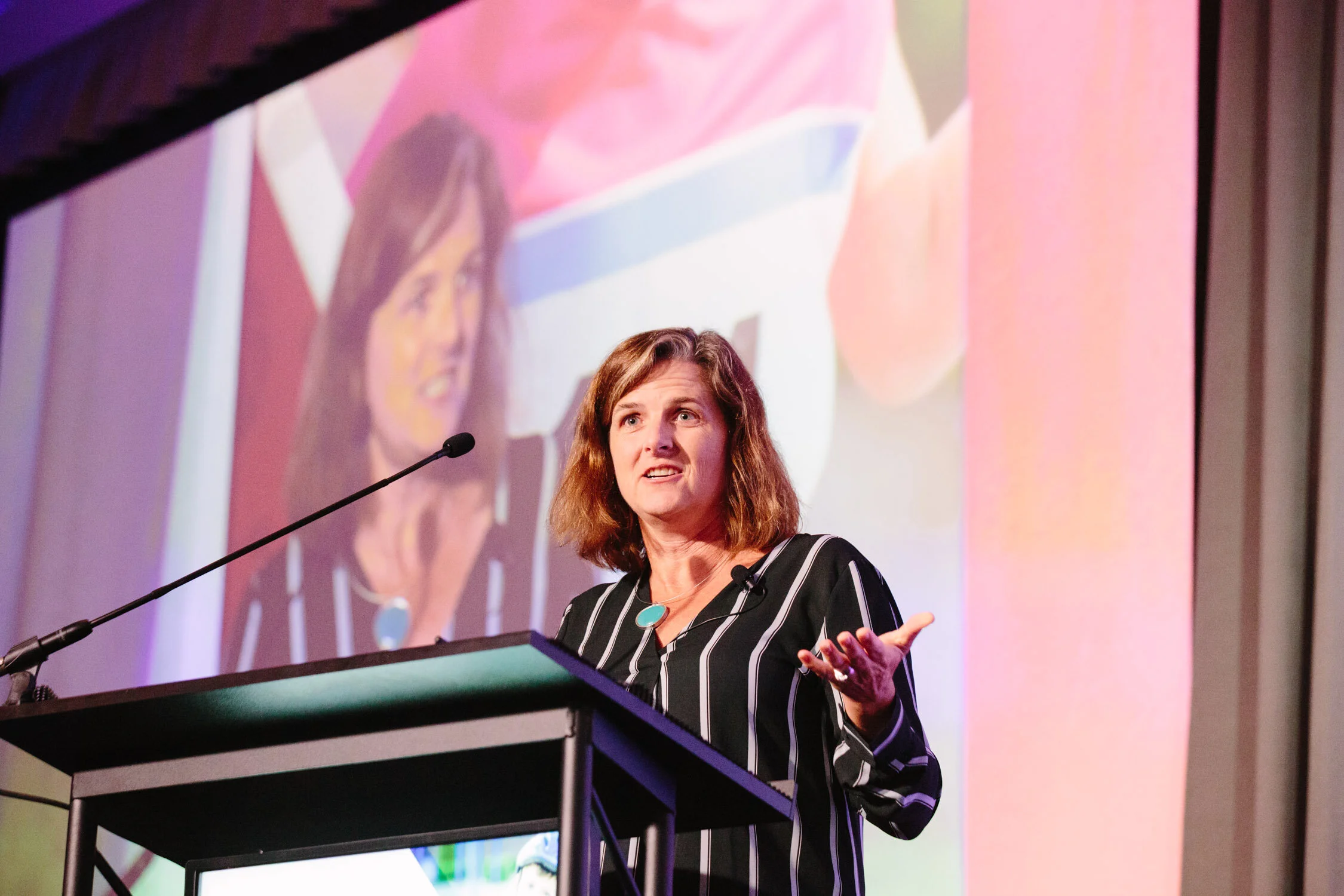State of Play Seattle–King County announcement at 2018 Project Play Summit
In 2019, the Aspen Institute landscaped youth sports in Seattle and King County. The project was in partnership with the University of Washington and King County Parks, along with the YMCA of Greater Seattle, Seattle Mariners, Kaiser Permanente, the Bezos Family Foundation, evo and Seattle Children’s Hospital in an effort to prioritize equal access to youth sports.
Seattle was the fastest-growing U.S. city in 2017, with 1,000 newcomers arriving every week. The population boom brings increased pressure on infrastructure, including the area’s shared spaces for play and sport. With access scarce, many travel teams are able to rent space for fields and community centers, leaving lower-income youth behind for what’s supposed to be shared spaces. Only 29 percent of sixth-grade youth in King County get the recommended level of physical activity, and this drops to 18 percent by the 12th grade. Hispanic and Pacific Islander youth are almost twice as likely to be overweight compared to the King County average. Listen to Tom Farrey of the Aspen Institute and Julie McCleery of the University of Washington Center for Leadership in Athletics discuss inequities for youth sports in Seattle.
State of Play Seattle–King County release at 2019 Project Play Summit
Since the release of the State of Play Seattle–King County in 2019, the initiative has made significant progress in the following ways:
The University of Washington formed the King County Play Equity Coalition to support and improve equitable access to safe, fun physical activity for all King County youth. Every Seattle pro sports team (Mariners, Seahawks, Sounds, Storm and Kraken) joined. The Seattle Sports Commission donated $500,000 over four years to the coalition to promote equity and access in sport and play. The group meets monthly and uses findings and recommendations from the report to guide a collective action process to increase the rate of youth meeting the CDC’s physical activity guidelines.
King County Play Equity Coalition successfully advocated for passage of one of the strongest recess laws in the country. The coalition surveyed 580 elementary and middle school parents across 16 counties in 2022. 75% of parents believe their child does not receive enough recess time.
Seattle Children’s Hospital received a $400,000 grant from the U.S. Department of Health and Human Services through its Youth Engagement in Sports program, which identifies effective collaborations that improve physical activity and nutrition.
The report’s recommendation to strengthen shared-use agreements and make public facilities more accessible was studied by a Governor’s Task Force, which established a number of recommendations for new state policies.
In 2022 under the Youth Sports & Outdoor Recreation Relief Fund, King County Parks partnered with the King County Play Equity Coalition to center communities most impacted by racism and the pandemic, developing solutions to invest with a racial equity lens. The goal of a safe reactivation of youth sports and outdoor recreation was established with a priority on centering youth of color and organizations led by people of color with deep partnerships in communities across South King County. More than 50 community members across South King County served as first-round reviewers, 84% of which were people of color. In total, 45 nonprofits will receive $4 million in funding to increase equity of youth access to sports and recreation.
King County provided $110 million in new grant funding for categories such as urban parks and open spaces, targeted equity, and aquatics. The funding prioritized that grantees implement recommendations from State of Play Seattle-King County.
SUPPORTED BY












